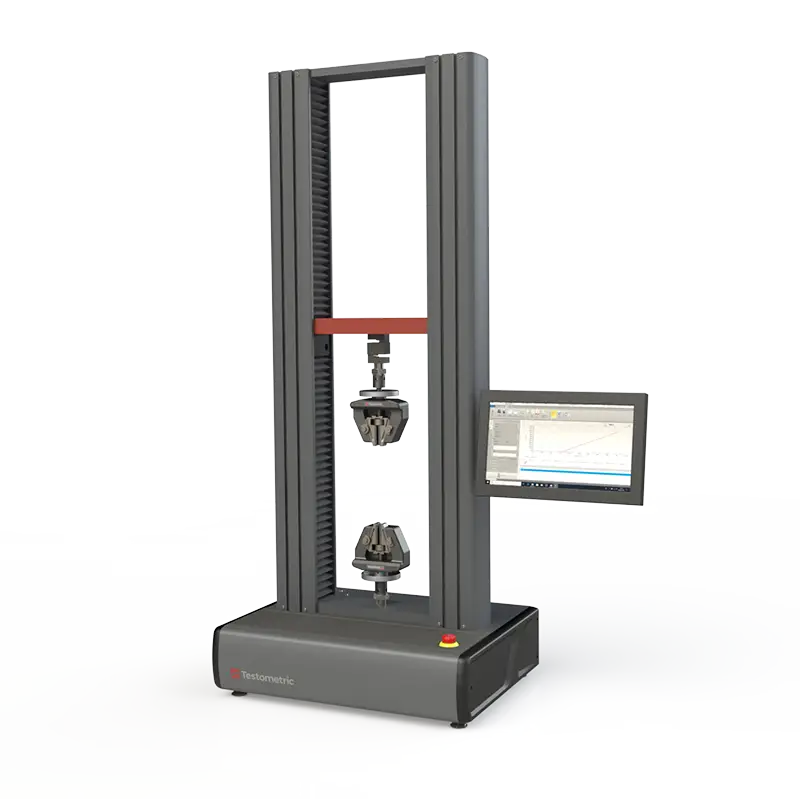LabroTek delivers industry-leading mechanical testing solutions designed to accurately evaluate material properties across diverse applications. Our comprehensive range of testing equipment provides precise measurements for tensile strength, compression, flexural properties, and fatigue testing to meet the demanding requirements of quality control, research, and product development.

Our versatile testing systems deliver reliable data for material characterization:
Complete your testing setup with specialized tools:
Our specialists help you identify the ideal equipment for your specific applications and requirements
Professional setup and comprehensive operator training to ensure optimal performance from day one
Dedicated assistance throughout your equipment's service life, including troubleshooting and updates
Regular service programs to maintain accuracy, compliance, and maximize operational uptime
Our mechanical testing solutions incorporate cutting-edge technology to deliver exceptional testing performance:
Calibrated load measurement systems providing accurate force readings across a wide range of testing applications from micronewtons to hundreds of kilonewtons
Exact regulation of test speed, position, and load parameters for comprehensive material evaluation under various conditions
Engineered to perform multiple test types including tensile, compression, flexural, shear, and cyclic testing with a single machine
Real-time tracking of test parameters with high sampling rates to capture critical material behavior during testing
Equipment designed to meet ISO, ASTM, DIN, JIS, and other global testing standards for reliable, reproducible results
Mechanical testing solutions are essential across numerous sectors:
Testing structural components, interior materials, and safety-critical parts for mechanical integrity and performance
Evaluating advanced composites, metals, and critical components under precise loading conditions for safety verification
Determining strength properties of concrete, steel, wood, and innovative building materials for structural applications
Assessing biomedical materials, implants, and devices for mechanical reliability and safety compliance
Analyzing mechanical properties including tensile strength, elasticity, and deformation characteristics of polymer materials
Testing mechanical behavior of various metal alloys including yield strength, ultimate tensile strength, and elongation properties
Evaluating tensile properties, tear resistance, and performance characteristics of industrial and consumer fabrics
Static testing applies force at a constant or slowly increasing rate to determine properties like tensile strength and elongation. Dynamic testing involves cyclic or rapidly applied forces to evaluate fatigue characteristics, impact resistance, and time-dependent material behavior. Most complete testing programs require both approaches to fully characterize material performance under real-world conditions.
The appropriate machine capacity should be selected based on the maximum expected force required for your testing, plus a safety margin of 20-30%. Consider both current and future testing needs across all materials and sample sizes. LabroTek's technical specialists can help determine the optimal capacity range for your specific application portfolio.
Common standards include ISO 6892 and ASTM E8 for metallic material tensile testing, ISO 527 and ASTM D638 for plastics tensile properties, and ISO 178 and ASTM D790 for flexural testing. Industry-specific standards like aerospace (ASTM D3039), construction (EN 12390), and medical device standards (ASTM F2077) are also widely used. Our equipment is designed to meet these and many other international testing standards.
Regular maintenance typically includes calibration of load cells and extensometers, inspection of drive systems, verification of alignment, checking crosshead guidance systems, and software updates. LabroTek provides comprehensive maintenance services and preventative maintenance plans to ensure optimal equipment performance and accuracy.
Accuracy and repeatability depend on proper machine calibration, correct sample preparation, consistent test procedures, and appropriate test parameter selection. Using certified reference materials, documenting detailed test methods, maintaining environmental controls, and regular system verification all contribute to reliable results. LabroTek can provide guidance on establishing robust testing protocols for your specific applications.
Yes, specialized environmental chambers can be integrated with testing systems to perform mechanical tests across a wide temperature range, typically from -80°C to +350°C depending on the system. These temperature-controlled environments are essential for understanding material behavior under various operational conditions and for compliance with specific industry standards.
Sample capacity varies by machine model. Standard universal testing machines typically handle specimens from small wire or film samples up to substantial structural components. The determining factors include the testing space between columns, maximum crosshead travel, and load capacity. Custom testing systems can be designed for extremely large or uniquely shaped items requiring specialized evaluation.
Calibration frequency depends on usage intensity and accuracy requirements, but annual calibration is the minimum recommendation for most applications. Critical testing environments may require quarterly verification or calibration. Most quality systems and testing standards mandate regular calibration by certified providers. LabroTek offers comprehensive calibration services to ensure your equipment maintains certified accuracy.
Yes, LabroTek offers rental and leasing solutions for mechanical testing equipment. This option is ideal for short-term projects, temporary capacity increases, evaluating equipment before purchase, or managing budget constraints while still accessing high-quality testing capabilities.
ROI typically comes from preventing costly product failures in the field, reducing warranty claims, optimizing material usage, accelerating product development cycles, and ensuring regulatory compliance. For manufacturers and research organizations, in-house testing capabilities often pay for themselves by preventing just one significant quality issue or by accelerating time-to-market for new products.